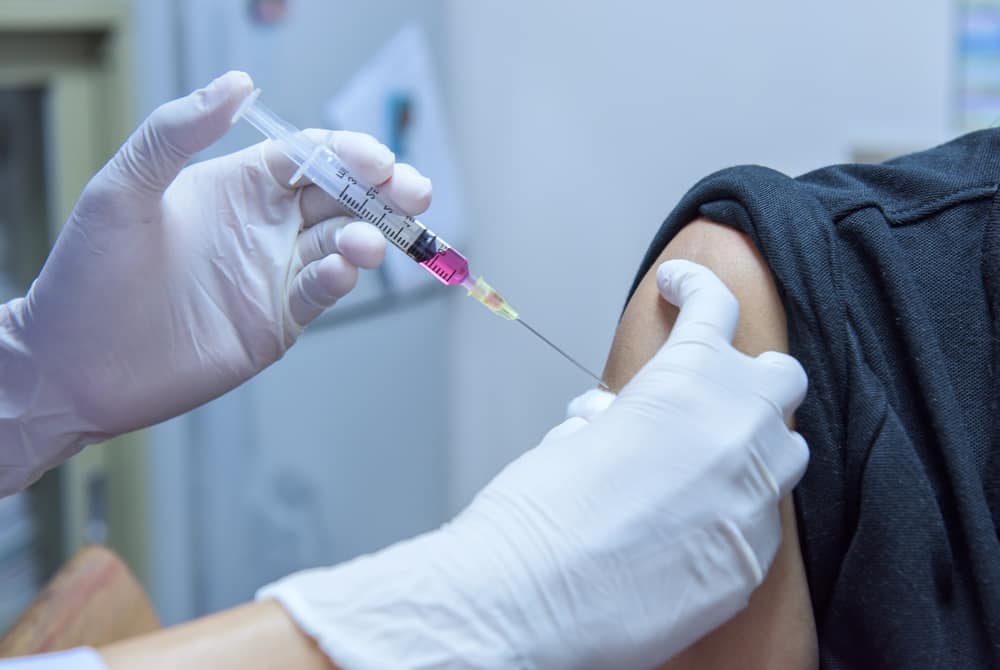Contents:
- Medical Video: Child & Adolescent Immunization, Adult Immunization Schedule and Hepatitis A Vaccine
- Following is the schedule for adult vaccines
- 1. Tetanus and diphtheria
- 2. Pneumococcal
- 3. Influenza
- 4. Hepatitis A and B
- 5. Measles, Mumps and Rubella (MMR)
- 6. Meningokok
Medical Video: Child & Adolescent Immunization, Adult Immunization Schedule and Hepatitis A Vaccine
Vaccines are not only needed by infants and young children. Even adults need it, especially if they miss their schedule as a child so that your immunization is incomplete. Some vaccines in childhood also have to be repeated or done periodically to maintain immunity. What and when do you schedule vaccines for adults? See below.
Following is the schedule for adult vaccines
1. Tetanus and diphtheria
Basically, every adult must get a complete vaccination set. Generally it can be obtained with three primary doses of diphtheria vaccine and tetanus toxoid. Both doses can be given at least four weeks apart, and the third dose is given six to 12 months after the second dose.
However, if there are adults who have never received tetanus and diphtheria immunization on a regular basis, they are usually given a primary series and followed by a booster dose every 10 years. What side effects can be obtained from this vaccine are swelling, bruising around injections, and even fever afterwards.
2. Pneumococcal
Pneumococcal vaccine is a vaccine intended to prevent disease due to bacterial infection Streptococcus pneumoniae or more often called pneumococcal infection.
The CDC recommends 2 pneumococcal vaccines for all adults aged 65 years or older, who suffer from chronic cardiovascular disease, diabetes mellitus, or other risk factors such as diseases of the lungs or liver. You must receive a PCV13 dose first, followed by a PPSV23 dose, at least 1 year later. If you have received a PPSV23 dose, the PCV13 dose should be given at least 1 year after receiving the latest PPSV23 dose. However, many doctors made a second shot 5 to 10 years after the first injection.
3. Influenza
Influenza vaccine is one of the adult vaccines that must be carried out for people over 50 years, residents of nursing homes and residents of public facilities for a long time, young people with heart disease, chronic lung, metabolic diseases (such as diabetes), kidney failure and HIV sufferers. This influenza vaccine is divided into two, active and inactive influeza vaccines, which are intended to prevent flu and other complications that can occur.
Ideally, you should get a flu vaccine once a year, especially before the flu season starts. The flu vaccine is usually offered starting in the month September to mid November every year.
4. Hepatitis A and B
Adults generally need hepatitis A and B vaccines if they do have the risk of the disease. However, this can also be done if you only want to protect his health. The hepatitis vaccine can be done at any time. Hepatitis A vaccine is given in 2 injections, the distance is 6 months apart. Meanwhile all children must get the first dose of hepatitis B vaccine once they are born and complete the vaccine series at the age of 6-18 months. If you have never received B vaccine before, you can get it anytime.
Some people who have risk factors such as living in a region or region that has a high rate of hepatitis, have liver problems, homosexuals, drug users, wajiba do vaccines. And vaccines for hepatitis A are usually given as much as 2 doses, with a distance of 6 to 12 months.
5. Measles, Mumps and Rubella (MMR)
Every person is required to get the MMR vaccine, at least once in a lifetime. The MMR vaccine is usually obtained during childhood. But the MMR vaccine is also especially important for adults born before 1957, or who have never had it as a child. You can get this vaccine anytime for the prevention of measles, mumps and rubella.
Some adults who are at risk of MMR exposure may need 2 doses (or more), which are carried out within a few weeks.
6. Meningokok
Adult vaccines, must and must be given to pilgrims of Umrah or adults who will travel to other countries. This vaccine is also recommended for individuals who have weak immunity, anatomic and functional asplenia patients, and when you travel to a country where there is an epidemic of meningococcal disease, Africa for example. Generally doctors will recommend you get this vaccine every time Every 3 years, if you are at risk as described above.












